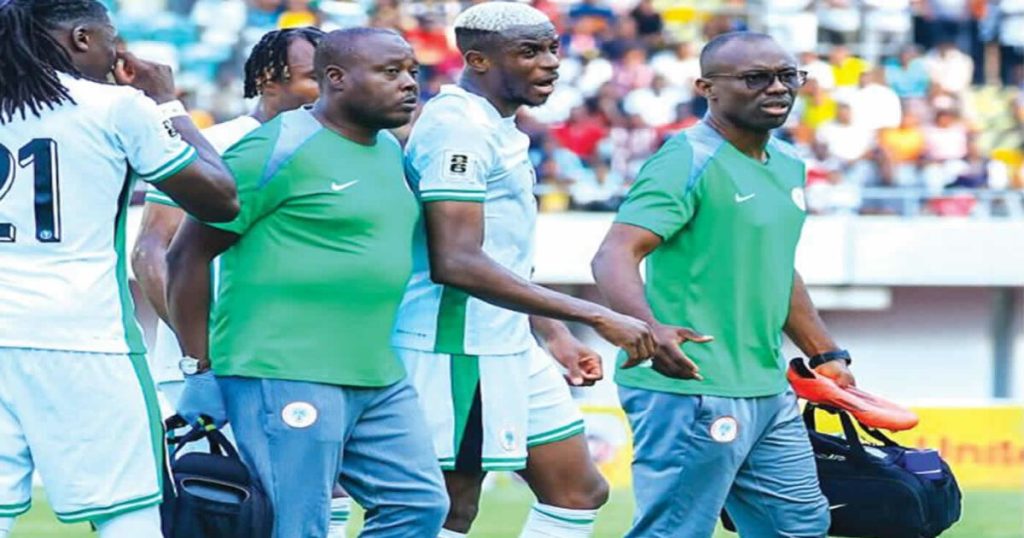Asamoah Gyan Refutes Accusations Against Victor Osimhen: A Deep Dive into the Controversy
The football world was recently abuzz with claims that Asamoah Gyan, Ghana’s all-time leading goalscorer, had accused Nigerian striker Victor Osimhen of feigning injury during a World Cup qualifier. These allegations, published by a Turkish media outlet, sparked a heated debate amongst fans and ignited the already simmering rivalry between Ghana and Nigeria. The report quoted Gyan as insinuating that Osimhen, a high-profile signing for Turkish club Galatasaray, had fabricated the injury to avoid international duty and prioritize club commitments, specifically the upcoming Champions League. The comments attributed to Gyan were particularly inflammatory, suggesting a conspiracy involving Osimhen, his club, and even medical professionals, all orchestrated to protect the player’s fitness for European competitions at the expense of his national team.
However, the narrative took a sharp turn when Gyan publicly denied making such statements, labeling the report as “fake.” The Turkish outlet subsequently retracted the story and issued an apology, confirming the fabricated nature of the quotes. Gyan’s swift and unequivocal denial put the controversy to rest, emphasizing the importance of verifying information before disseminating it, especially in the highly charged atmosphere of international football rivalries. This incident underscores the potential damage of misinformation in the digital age and the need for responsible journalism.
The initial report played on the existing tensions between Ghana and Nigeria, two of Africa’s footballing powerhouses. The rivalry between these two nations has a long and storied history, marked by fiercely contested matches and passionate fan bases. The alleged comments attributed to Gyan tapped into a common perception among African football fans: that European clubs often exert pressure on their African players to avoid international duty during qualifying matches, fearing potential injuries that could impact their club performances. This sentiment arises from the perceived imbalance of power between European club football and national team competitions in Africa, with clubs often wielding greater financial and political influence.
Osimhen’s injury occurred during Nigeria’s 1-0 victory over Rwanda. He was substituted early in the match and subsequently missed Nigeria’s following game. Medical examinations conducted by Galatasaray confirmed a moderate ankle sprain, sidelining him for a couple of weeks. This injury, while unfortunate, further fueled the speculation surrounding his commitment to the national team, especially given the timing in relation to Galatasaray’s Champions League campaign. The controversy surrounding Osimhen’s injury highlighted the delicate balance between club and country commitments, a dilemma frequently faced by international players, especially those from African nations.
The incident involving Gyan and Osimhen serves as a cautionary tale about the spread of misinformation and the need for accurate reporting. It also underscores the underlying tensions between European clubs and African national teams regarding player availability and the perceived prioritization of club competitions. The rapid dissemination of the false report through social media demonstrated the power of online platforms to amplify unverified information and the potential for significant reputational damage. While the retraction and apology helped mitigate the situation, the incident left a lingering reminder of the challenges posed by fake news in the digital age.
The controversy also brings to light the complex relationship between players, their clubs, and their national teams. While players often feel a strong sense of patriotism and pride in representing their country, they are also bound by contractual obligations to their clubs, who invest significant resources in their well-being and performance. This creates a delicate balancing act, particularly when international fixtures clash with crucial club matches. The pressure from European clubs on African players to prioritize club commitments has been a recurring theme, raising important questions about equitable treatment and the development of African football. This incident serves as a microcosm of the larger debate surrounding the future of African football and its place in the global football landscape.














